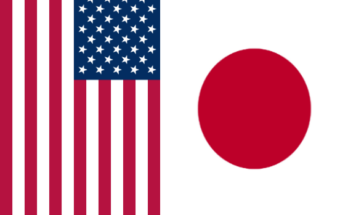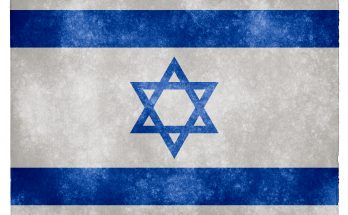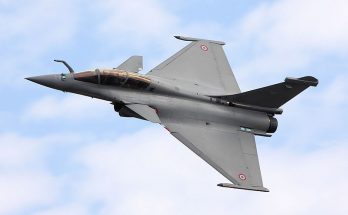by Derek Bisaccio, Military Markets Analyst, Forecast International.

U.S. President Donald Trump and Saudi Deputy Crown Prince and Minister of Defense Mohammed bin Salman bin Abdulaziz al-Saud walk along the West Colonnade of the White House in March 2017. (Official White House photo by Shealah Craighead)
U.S. President Donald Trump’s first 100 days saw a flurry of activity on both the domestic and foreign fronts as the new president seeks to address what he sees as the policy shortcomings of his predecessor and enact the pledges he made on the campaign trail. These efforts have at times prompted bipartisan support while at other times drawn fierce condemnation from the opposition Democratic Party and even his own Republican Party.
Abroad, however, the Trump administration is starting to see success in repairing previously strained relations with Gulf allies, who are key U.S. partners on a range of issues, especially security in the Middle East.
The previous administration, under former U.S. President Barack Obama, had a turbulent relationship with the Gulf, especially Saudi Arabia. Throughout his tenure, President Obama offered Riyadh over $115 billion in arms sales.[i] These include the advanced F-15SA fighter jet, deliveries of which began in December.
Even so, the former president’s public criticisms of Saudi Arabia’s human rights record as well as his willingness to negotiate with Iran over its nuclear program were both viewed negatively in the kingdom.[ii] President Obama viewed these moves, especially his criticism of alleged human rights violations in Saudi Arabia, as tough love for the Gulf ally, particularly given the size of the military sales the U.S. approved for Riyadh. The Obama administration touted the nuclear deal with Iran as having staved off a potentially disastrous war while “block[ing] all of these pathways to a bomb.”[iii]
Saudi Arabia, which denies the accusations of human rights abuses, viewed the Obama administration’s policy differently. Saudi King Salman bin Abdulaziz al-Saud defended his country’s justice system personally to President Obama, according to a senior U.S. official who spoke to The New York Times in April 2016,[iv] and saw the sanctions relief for Iran under the nuclear deal as emboldening Tehran and aiding its regional ambitions, without adequately impeding its nuclear program.
The start of the new administration under President Trump, however, has raised Saudi hopes, as well as the hopes of other Gulf allies, that a “historical turning point” in relations has been reached.[v]
On the subject of human rights, the Trump administration has signaled it will focus instead on improving ties rather than criticizing its allies, at least publicly. The long-stalled sale of F-16s to Bahrain – held up by the Obama administration over an effort to promote unspecified improvements in the country’s human rights record – appears set to move forward under the Trump administration, without any preconditions.[vi]
While this stance on human rights generally has won the administration fierce condemnation at home,[vii] abroad it is seen as a positive step toward elevating strategic considerations over the perceived humanitarian emphasis of the Obama administration. President Trump alluded to this sort of policy while a candidate for office in a foreign policy speech in April 2016 at the Center for the National Interest, when he issued a call “to shake the rust off America’s foreign policy” and noted, “My foreign policy will always put the interests of the American people and American security above all else.”[viii]
The Trump administration, under pressure from Democratic politicians and rights organizations,[ix] has not wholly abandoned supporting human rights, but is certainly less amenable to straining relations with key allies over the subject, preferring instead to prioritize strategic engagement.
Moreover, regarding Iran, the Gulf is starting to see the Trump administration as a partner. Although President Trump is unlikely to rip up the Iran nuclear deal outright, although he has at times indicated an interest in doing so, he has long maintained that he will enforce the deal’s terms as strongly as he can and explore any renegotiation options.
Several weeks after being confirmed, President Trump’s Defense Secretary pick, retired Marine Corps General James Mattis, alleged that Iran is “the single biggest state sponsor of terrorism in the world.”[x] He has since emphasized that stance and, during a visit to Riyadh last month, took a strong position against alleged Iranian proxy Ansar Allah in Yemen, where Saudi Arabia is currently engaged in a military campaign.
The Trump administration has also backed up its rhetoric through military action, to the delight of the Gulf. Last month, after an alleged chemical weapons attack on Khan Sheikhoun in Idlib, Syria, President Trump ordered Tomahawk cruise missile strikes against the Syrian Air Force’s Shayrat air base,[xi] the first deliberate effort on the part of the United States to target Iranian ally Syrian President Bashar al-Assad.[xii]
The strikes were met with support from the Gulf, which opposes President Assad. On the same day the missile strikes hit Shayrat, Emirati state-owned media cited the United Arab Emirates’ Minister of State for Foreign Affairs, Dr. Anwar bin Mohammed Gargash, as praising the “courageous and wise decision of U.S. President Donald Trump.” Gargash is quoted as further stating that Trump’s decision “highlights and strengthens the U.S. position after the failure of the U.N. Security Council to play its role in the protection of international peace and security.”[xiii]
In his speech at the Center for the National Interest, then-candidate Trump stated that the United States “must as a nation be more unpredictable.” But whereas the Gulf may have viewed President Trump cautiously after his election – given campaign pledges to stop buying oil from Saudi Arabia, for example, or his call to ban all Muslims from entering the country in December 2015 – the Gulf countries are starting to view themselves as having a friend in the White House again.
The Forecast International International Military Markets series examines the military capabilities, equipment requirements, and force structures inventories of 140 countries, with corresponding coverage of the political and economic trends shaping the defense market outlook for individual countries and regions.

[i] Yara Bayoumy, “Obama administration arms sales offers to Saudi top $115 billion: report,” Reuters, September 7, 2016. http://www.reuters.com/article/us-usa-saudi-security-idUSKCN11D2JQ
[ii] Michael D. Shear and Ben Hubbard, “Obama and King Salman of Saudi Arabia Meet, but Deep Rifts Remain,” The New York Times, April 20, 2016. http://www.nytimes.com/2016/04/21/world/middleeast/obama-arrives-in-saudi-arabia-amid-a-new-round-of-contention.html
[iii] Rebecca Kaplan, “Energy secretary: Iran deal blocks pathways to bomb,” CBS News, April 5, 2015. http://www.cbsnews.com/news/energy-secretary-iran-deal-blocks-all-pathways-to-a-bomb/
[iv] Amnesty International, 3 ways Saudi Arabia is abusing human rights – and how they’re getting away with it,” June 29, 2016. http://www.amnesty.org/en/latest/campaigns/2016/06/3-ways-saudi-arabia-is-abusing-human-rights/
[v] Al-Jazeera, “Saudi Arabia: Trump meeting a ‘historic turning point,'” March 15, 2017. http://www.aljazeera.com/news/2017/03/saudi-arabia-trump-meeting-historical-turning-point-170315040207874.html
[vi] Patricia Zengerle, “Trump administration pursues sale of F-16’s to Bahrain: source,” Reuters, March 29, 2017. http://www.reuters.com/article/us-usa-bahrain-aircraft-idUSKBN170357
[vii] Philip Rucker, “Trump keeps praising international strongmen, alarming human rights advocates,” The Washington Post, May 1, 2017. http://www.washingtonpost.com/politics/trump-keeps-praising-international-strongmen-alarming-human-rights-advocates/2017/05/01/6848d018-2e81-11e7-9dec-764dc781686f_story.html
[viii] The New York Times, “Transcript: Donald Trump’s Foreign Policy Speech,” April 27, 2016. http://www.nytimes.com/2016/04/28/us/politics/transcript-trump-foreign-policy.html
[ix] Warren Strobel and Arshad Mohammed, “Weighing arms sale, U.S. seeks Saudi pledge on Yemen civilian casualties,” Reuters, April 20, 2017. http://www.reuters.com/article/us-usa-saudi-yemen-idUSKBN17M2ZK
[x] Shirzad Bozorgmehr, Sara Mazloumsaki and Angela Dewan, “Iran world’s ‘biggest state sponsor of terrorism,’ Mattis says,” CNN, February 4, 2017. http://www.cnn.com/2017/02/04/politics/mattis-iran-us-sanctions-missile/
[xi] Derek Bisaccio, “U.S. President Trump Orders Tomahawk Strikes on Syrian Airbase,” Forecast International, April 7, 2017. http://www.defensesecuritymonitor.com/wordpress/u-s-president-trump-orders-tomahawk-strikes-on-syrian-airbase/
[xii] A series of U.S. airstrikes in Deir ez-Zor that hit the Syrian Army, killing 62, notwithstanding; the Obama Administration called these strikes accidental.
[xiii] WAM, “UAE backs U.S. air strikes against Syrian regime,” April 7, 2017. http://wam.ae/en/details/1395302607367
For 50 years, Forecast International intelligence reports have been the aerospace and defense industry standard for accurate research, analysis, and projections. Our experienced analysts compile, evaluate, and present accurate data for decision makers. FI's market research reports offer concise analysis of individual programs and identify market opportunities. Each report includes a program overview, detailed statistics, recent developments and a competitive analysis, culminating in production forecasts spanning 10 or 15 years. Let our market intelligence reports be a key part of reducing uncertainties and mastering your specific market and its growth potential. Find out more at www.forecastinternational.com



